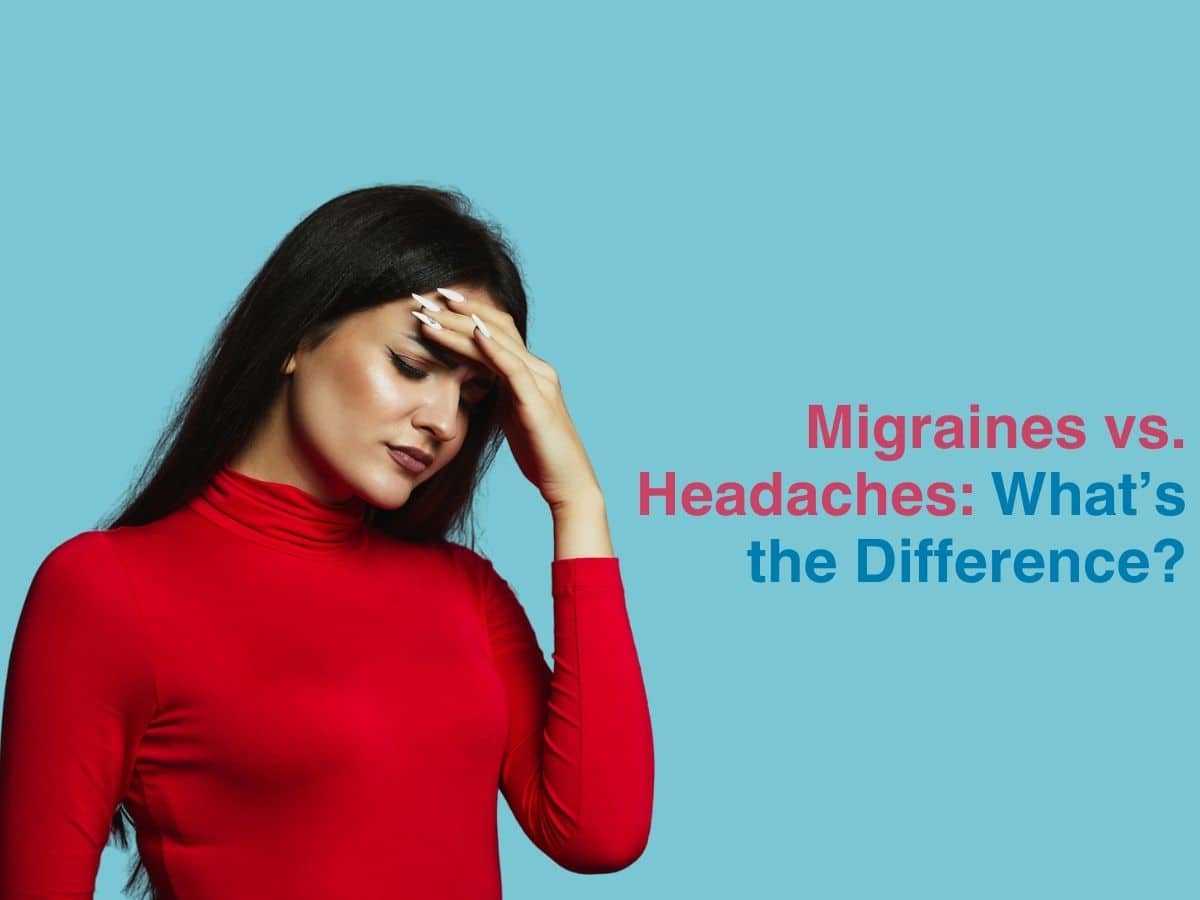
Migraines vs. Headaches: What’s the Difference?

You have a deadline coming at work or in school and you can feel the tension mounting. You can feel a dull throbbing ache in your head. Now, normally you’d dismiss it as a headache and just pop pain pills to get better. But what if we told you that every time your head seems to ache, it may not just be a normal headache? It could be a migraine too! Let us see how a headache differs from a migraine.
Migraine vs. Headache Pain: Understanding the Difference
There are many different kinds of headaches themselves-
- Tension Headaches – You can think of tension headaches as ones caused due to hunger, stress, thirst, not sleeping enough, being tired etc. So, it seems to begin at the back of the head and then slowly creeps forward or it can be painful on both sides too.
- Cluster Headaches – These headaches normally tend to strike you for many days or weeks and it seems to happen almost at the same time everyday. This is because of some neurotransmitter molecules like serotonin and histamines which cause blood vessels to get dilated. This rush in blood can be literally painful. There can be any number of reasons – like bright lights, high altitudes or if you work too much.
- Sinus Headaches – These are when you are ill- like you have a cold or you have sneezed way too many times. Your nose and throat can fell congested and the air passages can get filled with mucus. These get more pronounced when you bend down or early in the mornings.
Migraines on the other hand can be thought of as neurological issues which may cause headaches along with other symptoms like fatigue, nausea, not feeling fine around loud sounds, bright lights etc. Headaches just seem to hit you out of nowhere but migraines tend to build up slowly. You can clearly notice different phases hitting you if it is a migraine-
- Prodrome Phase – the vague feeling that you will have pain later on – like a stiff neck,mood swings etc.
- Aura Phase – this is when the headache may or may not be present. It may be mild or it can be so severe that you may just want to cry and get it over with. It is called an aura because a person notices spots, blurry vision or even speech changes when it happens. It is normally not this severe for most people.
- Headache Phase – the time when you actually have to deal with a severe headache. You may need medication to feel better.
- Postdrome Phase – The time when the headache has gone but you still feel tired and utterly spent from it, like having a hangover.
Headaches normally have well known triggers or causes, but migraines are not like that. Some commonly known triggers include-
- Being allergic to pollen, strong perfumes or smells, allergies etc.
- Women face more hormonal shifts than men, which is why women tend to get more headaches or migraine episodes than men.
- Some people have a family history – migraine related genes tend to run in families.
- Some people also cannot deal well with changes in humidity, weather, dust, not sleeping well, stress, etc.
Migraine vs. Headache Treatment Options-
Since migraines are definitely different from normal headaches, treatment approaches are not that different. This is mainly because we don’t understand how triggers work. But you may be prescribed painkillers like ibuprofen, acetaminophen or aspirin depending on what the doctor may think is good for your case. For people who get more severe headache or migraines, they may be given more specialised medication- like antidepressants, anticonvulsants, botox injections or even beta blockers.
Making long lasting lifestyle related changes actually seem to help many people-
- Like eating meals on time.
- Making it a point to get at least 8-10 hours of sleep every night
- Some foods can be triggers too, so you should avoid them
- You should try yoga or meditation to de-stress everyday
- Physical activity – like working out every other day is a good thing too. It will get serotonin flowing and boost melatonin levels in your brain
- Drinking plenty of water everyday is a good thing
- You can also try to keep a diary where you note down everything you think may be a trigger. If you find some common factors, then you know to avoid them in the future.
- When your quality of life greatly suffers, it is time to see a doctor for specialised care.
Conclusion
We now know that migraines may cause headaches but their triggers are not so easily distinguishable, like those of headaches. You should talk to a doctor when your daily routine begins to suffer. Though it is easy for us to say that you should stay away from triggers, it is pretty difficult to understand what those specific triggers may be. You can talk to your doctor about your probable triggers and they will be able to help you with specific medication. So, don’t wait till it has progressed too far!
Frequently Asked Questions
Can migraines cause nausea, or is that only a headache symptom?
How do cluster headaches differ from migraines?
Are migraines more severe than normal headaches?
How are migraines treated differently from headaches?
Can a headache turn into a migraine if left untreated?

Dr. CH. Gopal
MBBS, MD (NIMS), DM (Osmania)
Sr. Consultant Neuro Physician






